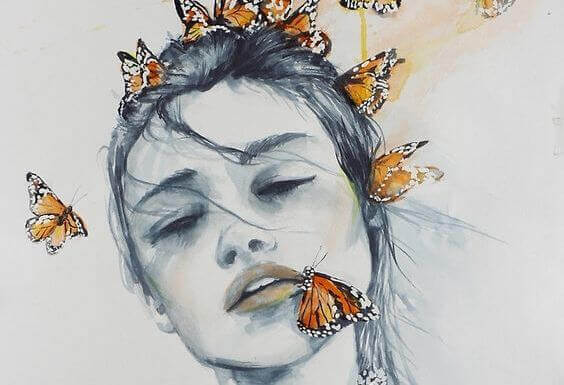Grief is one of those states that every human being faces several times in his life, we were not born well and we begin to lose, in turn, each loss implies a suffering that must be digested and overcome.
The common aspect of any duel is that it implies a loss. However, since losses can be of different nature, there are also different types of bereavement. Are we talking about “evolutionary grief”?when referring to the losses that result from the transition from one age to another. It is also known as “social grief”, such as job loss, retirement, exile, etc.
- “Only people who are able to love intensely can suffer great pains.
- But this same need to love serves to fight and heal their pain.
- -Leon Tolsto-.
However, the most difficult duel is that which comes from the loss of loved ones, especially by death, this is largely due to the end of the bond, but not to the love of the one who is made. nor the dreams, fantasies and hopes that accompany it. Suffering is therefore intense and requires a lot of work to be overcome. From the point of view of emotional loss, there are several types of bereavement that we will describe below.
This duel occurs when someone knows they are going to suffer an imminent loss, but it has not yet materialized, this occurs when, for example, a divorce is prepared, a long journey, when a terminal illness occurs or when euthanasia is planned.
The difference with other pains is that in anticipation, feelings tend to be much more ambivalent and unstable. As the person is always there, the mourners alternate between proximity and distance: they want to feel the presence of this person for the last time, but at the same time they fear the attachment that this causes. In these cases, your best option is to express your feelings openly and directly to the person leaving.
It is a form of mourning in which the affected person blocks his feelings, pretends to act as if nothing and becomes completely airtight to the subject, in fact, if you mention it, it does not give you a different weight than any other. another issue.
In this case what is happening is a mechanism of denial, the impact is so strong that the person does not feel able to face it, so he focuses on other aspects of life, the problem is that hidden pain always returns, whether in the form of irritability, anxiety or physical illness, among others.
Chronic bereavement occurs when a person gives no further details about the loss of a loved one, one way or another resists accepting what happened and obsessively focuses on keeping the memory of that person who is no longer alive, this ends up paralyzing their life and constantly maintaining a posture of pain.
People with depressive tendencies are more likely to settle into this type of grief, which also becomes a way of life. It excels in anxiety, sadness and guilt, as well as a sense of helplessness and frustration. This type of bereavement requires professional help.
It is, in general, an absent grieving effect, although at first the person pretends to ignore his pain, after a while he leaves very strongly and perhaps at the least expected moment, sometimes it can even take several years for the duel to begin.
This also happens to the person who cannot cry at the time of the disaster, due to special conditions, such as a very important professional commitment or an urgent family situation. The pain appears later and presents complications to feel.
This type of mourning is experienced by people who have great difficulty expressing their feelings. For children, for example, who cannot put words in everything that this situation represents. Adults often ignore their pain and don’t help them get over it because they’re convinced they “don’t understand. “
Grief is also inhibited in people with a certain type of cognitive decline, or in situations such as parents who try to stay strong so as not to affect their children or simply when someone is very secretive and does not have the opportunity to talk about how they feel, in any case inhibition results in obsessions, constant depression, anxiety, etc.
In unauthorized bereavement what happens is a rejection of the environment of pain experienced by a person, in the long run, sooner or later, others are still trying to ban mourning at some point, because for those who do not suffer, what grief The person to do is let go of those who have already left and continue with their lives.
However, there are specific situations in which bereavement is openly forbidden from the beginning, for example, when a man or woman who had an extramarital relationship dies, will the lover or lover have no right to express his or her sorrow?Sometimes this also applies to the death of a pet, because it causes a lot of pain, but those who don’t like an animal don’t understand it and will disqualify suffering.

